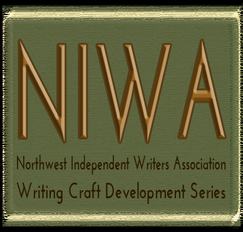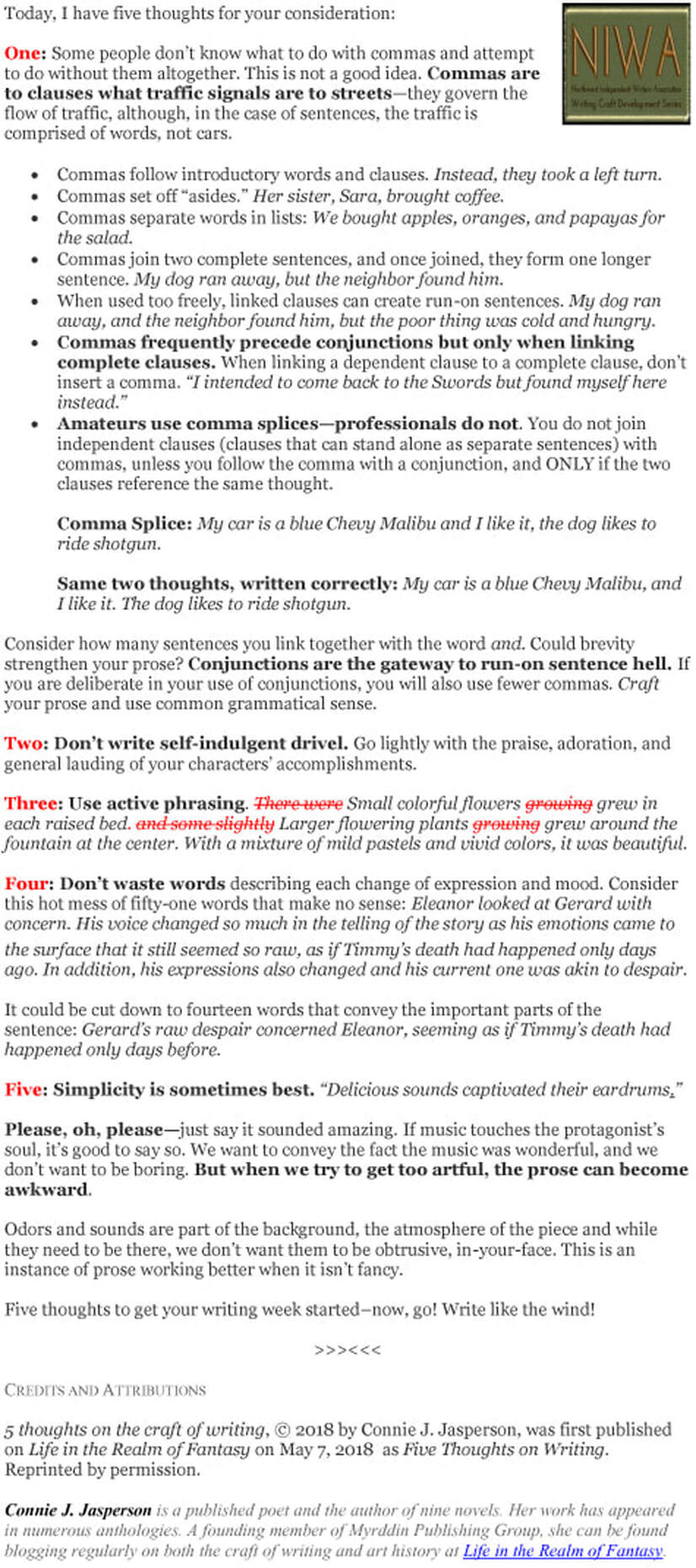 November 1st, is here, the beginning of National Novel Writing Month, or NaNoWriMo. Many authors have begun this month fully intending to get their 50,000 words by November 30th. NIWA author Lee French and I are co-MLs for the Olympia Region for NaNoWriMo. In our region last year, 245 writers created profiles and began an official manuscript at www.nanowrimo.org. More than half were college students. We’ve been doing this for a while, and we have seen a pattern. The first roadblock happens when reality sets in. This usually occurs within the first few days. Last year 64 writers in our region never got more than 5,000 words written. One stopped at 34. A majority of new NaNo writers are people who “always wanted to write a book.” Often, they don’t have any idea of what they want to write, and no clue of how to be disciplined enough to write any words, much less the number of words it takes to make a novel. They start, get 30 to 1,000 words in, and realize they have nothing to say. But in our region, 34 of these people made it to the 10,000 word mark before they stopped writing. That’s an achievement—it’s almost a novella. Other new writers are fired up on day one. They go at it full tilt for a week, or even two, and then, at the 20,000 word mark, they take a day off. Somehow, they never get back to it. Their novels will languish unfinished, perhaps forever. Even seasoned writers who have crossed the finish line at NaNoWriMo in previous years may find the commitment to sit and write 1,667 words every day is not doable for them. Things come up—life happens. But by November 30th last year, 78 writers out of the 245 in our region had made it to the 50,000 word mark, and 5 exceeded 100,000 words. Some of these novels were complete and ready for revisions. It takes commitment and discipline to write 1,667 new words every day. This is not revising old work. This is writing something new and not looking at what you wrote yesterday. This is sitting down at the keyboard and opening the document to the place where you left off and moving forward. For me, having an outline keeps me on track and writing a coherent novel. I’m not a good typist. The words that fall out of my head during this month are not all golden, just so you know. Some words will be garbled and miskeyed. This means I sometimes have a lot of revising of the work I intend to keep. Some of what I write will be worth keeping, and some not at all. But even among the weeds, some passages and scenes will be found that could make a story work. I will keep and use them because they say what I mean to say, and the others I will revise. In the past, I have used November to write short stories. To that end, I kept a list of ideas and prompts, and had it ready for when I began to write. The words fell out of my mind, and the stories told themselves. This year I am writing a contemporary novel under my other penname. Finishing November with a completed novel is a matter of sitting down and writing. If you don’t get those ideas out of your head and onto paper, you can’t revise and reshape them into something worth reading. How do we develop the discipline to write every day? This is my list of suggestions for how to have a successful NaNoWriMo, and end November with that winner’s certificate:
Remember, not every story is a novel. If your story comes to an end, start a new story in the same manuscript. Use a different font or a different color of font, and you can always separate the stories later. That way you won’t lose your word count. Validate your word count every day once that option is offered to you. Yes, these suggestions do require you to actually sit in a chair and write. Talking about what you intend to write won’t get the book written—for that you must sit your backside down and write. That is what NaNoWriMo is all about. Writing, and developing discipline. >>><<< Credits and Attributions: Connie J. Jasperson is a published poet and the author of nine novels. Her work has appeared in numerous anthologies. A founding member of Myrddin Publishing Group, she can be found blogging regularly on both the craft of writing and art history at Life in the Realm of Fantasy. Portions of this article were first published on October 24, 2018 on Life in the Realm of Fantasy as “Many will begin, few will succeed,” © 2018 Connie J. Jasperson and has been reprinted by permission. |
Archives
January 2023
Categories |
|
Contact us at:
Mailing Address: Northwest Independent Writers Association P.O. Box 1171 Redmond, OR 97756 Email: [email protected] [email protected] |

 RSS Feed
RSS Feed
